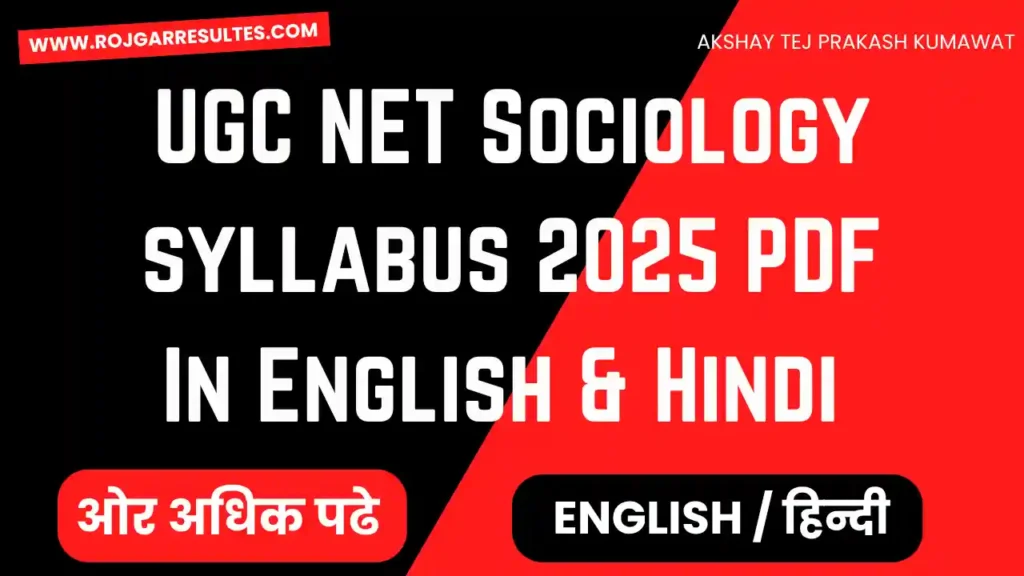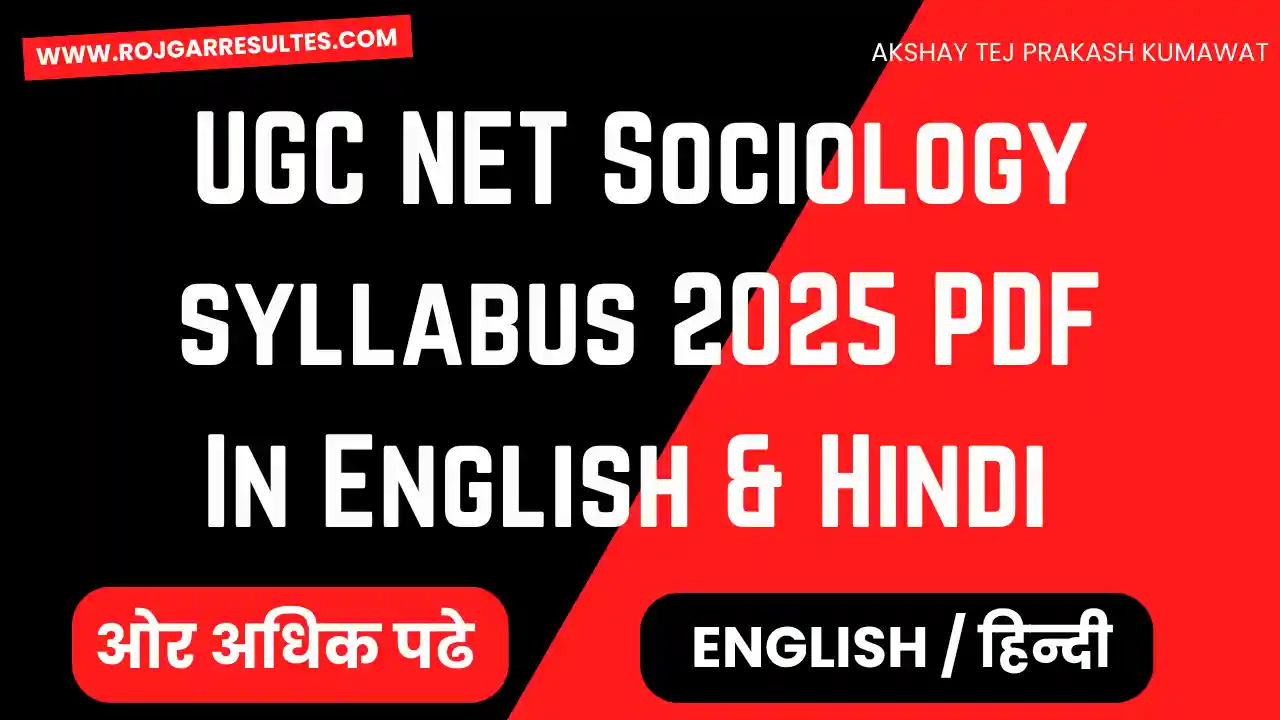UGC NET Sociology Exam 2025, understanding the detailed syllabus is the first and most important step. The University Grants Commission (UGC) and National Testing Agency (NTA) conduct this exam to determine the eligibility of candidates for Assistant Professor and Junior Research Fellowship (JRF) in Indian universities and colleges.
सभी अभ्यर्थियों को सूचित किया जाता है कि रिजल्ट, सिलेबस, आवेदन लिंक, एडमिट कार्ड व नोटिफिकेशन के सभी लिंक नीचे उपलब्ध हैं।
The UGC NET Sociology Paper 2 syllabus (Code 05) focuses on theoretical understanding, research methodology, social institutions, and contemporary sociological issues. This guide provides a complete unit-wise explanation of the updated UGC NET Sociology syllabus with SEO-optimized content for better visibility.
1: Sociological Theory
This unit focuses on the classical and modern sociological thinkers who laid the foundation of sociology. You should study the contributions of Emile Durkheim, Max Weber, and Karl Marx, who represent the classical traditions. In structural and functional analysis, focus on Bronislaw Malinowski, A.R. Radcliffe-Brown, Talcott Parsons, Robert K. Merton, and Claude Lévi-Strauss. The hermeneutic and interpretative tradition includes G.H. Mead, Karl Mannheim, Alfred Schutz, Harold Garfinkel, Erving Goffman, and Clifford Geertz.
Modern and postmodern approaches include Edward Said, Pierre Bourdieu, Michel Foucault, Jurgen Habermas, Anthony Giddens, and Manuel Castells. Indian sociological thought is equally important, with thinkers like M.K. Gandhi, B.R. Ambedkar, Radha Kamal Mukherjee, G.S. Ghurye, M.N. Srinivas, and Irawati Karve contributing immensely to the field.
2: Research Methodology and Methods
The second unit of the UGC NET Sociology syllabus 2025 deals with how sociological research is designed and conducted. You must understand the philosophy of science, scientific method, and epistemology in social sciences. The concepts of objectivity, reflexivity, ethics, and politics are central to this topic. Students should learn about formulating research designs, hypotheses, data reading, and the distinction between facts, concepts, and theories.
Research methods include both quantitative and qualitative techniques such as ethnography, surveys, historical analysis, and comparative methods. Techniques like sampling, questionnaires, interviews, case studies, and statistical analysis are key tools. Candidates should also master data interpretation and report writing for better analytical skills.
3: Basic Concepts and Institutions
This unit introduces essential sociological concepts like social structure, culture, network, status, role, identity, community, and diaspora. It also explores ideas like values, norms, rules, personhood, habitus, and agency. Understanding bureaucracy, power, and authority helps in connecting theory with institutions such as family, kinship, economy, polity, religion, education, law, and customs.
Finally, processes of social change such as evolution, modernization, globalization, and social mobility are core themes.
4: Rural and Urban Transformations
This section of the UGC NET Sociology syllabus explores India’s changing rural and urban realities. Candidates should understand issues like de-peasantization, migration, and agrarian unrest.
Urban sociology focuses on urbanization, industrialization, service economy, slums, gated communities, and urban middle-class culture. Topics like urban violence, community conflicts, and urban social movements are highly relevant for Paper 2 questions.
5: State, Politics, and Development
This unit links sociology with political processes. Topics like public policy, education, health, gender and development, corruption, and grassroots democracy are important. It also examines social movements and protests based on caste, gender, region, religion, and ideology. Understanding civil society, citizenship, NGOs, activism, and reservation politics is crucial for both theoretical and applied sociology.
6: Economy and Society
This unit emphasizes the relationship between economic systems and social structures. Key topics include exchange, gift, capital, labour, market, property, and production. You must study state-market relations, welfarism, neoliberalism, poverty, and exclusion.
Other themes involve industrial systems, labour relations, gender and work, and the emerging digital economy, e-commerce, global business, consumption, and tourism. These topics reflect how globalization transforms society.
7: Environment and Society
This unit covers social and cultural ecology, technological change, agriculture, and biodiversity. Focus on indigenous knowledge, ethno-medicine, gender and environment, and forest policies. It also examines ecological degradation, displacement, rehabilitation, and water scarcity.
Important contemporary areas include climate change, environmental pollution, public health, and community responses to disasters. You must also study environmental movements and international environmental policies.
8: Family, Marriage, and Kinship
Family, marriage, and kinship form the foundation of social structure. The syllabus covers theoretical approaches like structure-functionalism, alliance theory, and cultural perspectives. Students must understand inheritance, succession, gender roles, sexuality, and reproduction.
Emerging issues include changing marriage practices, domestic violence, honor killings, and new forms of family structures.
9: Science, Technology, and Society
In this modern world, technology deeply influences society. This unit examines the history of technological development, changes in time, space, and communication, and virtual communities.
10: Culture and Symbolic Transformations
. It includes rituals, beliefs, moral economy, education, religious organizations, and spirituality. Contemporary topics include commodification of rituals, communalism, secularism, cultural identity, gender and body politics, and art and aesthetics.
. This unit captures the dynamic transformation of cultural life in the global era.

